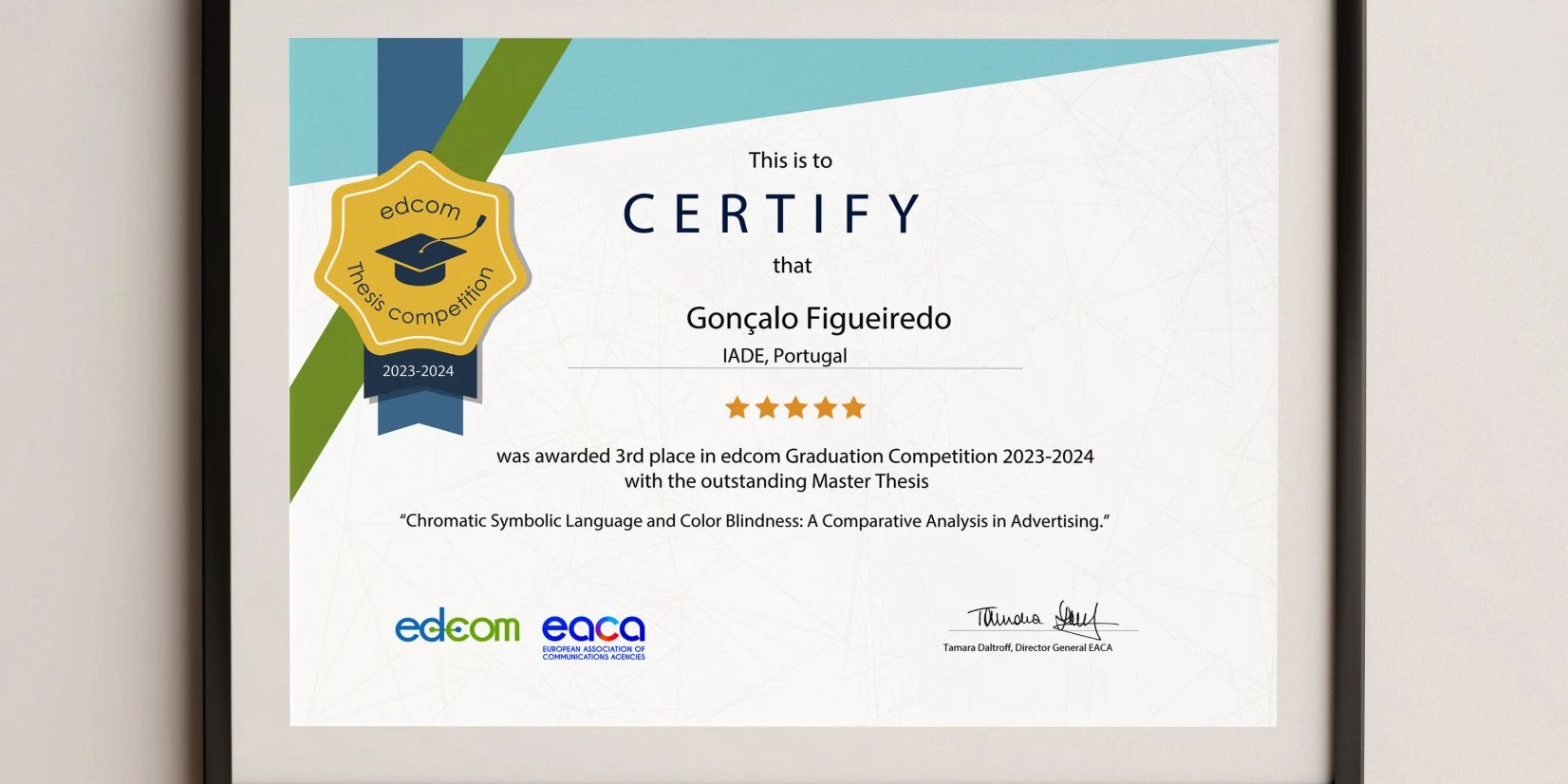
IADE student's thesis wins 3rd place in EDCOM competition
March 19 2024
Read more
1. How does it feel to win 3rd place in EDCOM's competition for best master's thesis?
The satisfaction I feel from the results obtained in this research is indescribable. It was challenging to dedicate myself fully to the thesis, something that took me completely out of my comfort zone and required a firm decision. And contemplating where this has taken me so far is like witnessing the realization of an improbable dream. The challenge was to complete the thesis and with it the master's degree, but these achievements that were not in the initial plans have an even sweeter and more exotic flavor because of it, especially considering the additional opportunities that have arisen. Such as presenting at two international congresses, obtaining my first publication as part of this study and, now recently, winning third place.
2. How does this competition work?
The EDCOM Graduation Competition is one of the main competitions designed to reward the best bachelor's and master's dissertations or essays produced by students from EDCOM member institutions, which brings together 46 academic institutions from 16 European countries. Participation in the competition required the submission of an abstract of the dissertation and the creation of an A1 poster summarizing all the research.
3. What was your thesis topic and why did you choose it?
The topic of my thesis explored the perspective of people with color blindness, with the aim of understanding their perceptions when reading advertising, in order to gain insights into how to improve communication without compromising the message. From the outset, this topic attracted attention and generated doubts due to the difficulty it represented. I remember presenting it and receiving "good luck" wishes, as I was entering a path of uncertainty over which I had no control. I decided to take on the challenge anyway because, deep down inside me, I felt that if it worked, the results could be really interesting. Now, you may be wondering: why choose colorblind people? The answer is relatively simple. I had the opportunity to choose a field that allows me to do truly incredible things, from creating, educating, influencing to providing unique experiences, and every step along the way is a chance to impact lives in profound ways. And with technological advances, we have expanded horizons of inclusion in an extraordinary way, allowing significant portions of the population to enjoy the same experiences. Hence the choice of topic for my thesis. It wasn't just a matter of exploring a topic for the sake of it, but of following my convictions and what I believe in.
4. In addition to your knowledge of the subject, what do you feel you have gained?
More than anything else, what I've really gained, on an intimate and personal level, is that I shouldn't limit myself or underestimate my potential before I even try. These may seem like mere clichés, empty or obvious words, but they are surprisingly the barriers we create for fear of making mistakes, before we even take the first step.
5. Would you like to give a challenge or advice to students who think that writing a thesis is difficult or that it's not fun or enjoyable?
The biggest piece of advice I can offer is not to see the thesis as an insurmountable challenge, even if at first glance it seems daunting. As with any challenge, it's essential to look beyond the obvious and explore the issue from different perspectives. During the process, which usually lasts about a year, it's natural to encounter ups and downs, as well as deal with uncertainties. That's why it's crucial to choose a topic that truly motivates you during this period and to choose a good advisor, as these are the main pillars that support all the work. In addition, not underestimating the importance of time is essential. After all, it's just another piece of work that has a unique importance.